The Unique Beauty of Sphynx Cats: A Comprehensive Guide
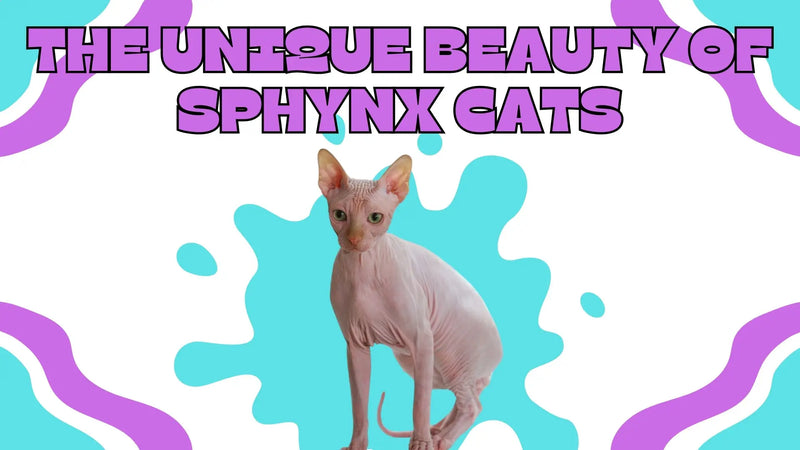
Introduction
Sphynx cats, with their striking hairless bodies and expressive faces, have earned a special place in the hearts of cat lovers around the world. But beyond their curious appearance, these unique felines offer a blend of affection, intelligence, and playfulness that makes them unforgettable companions. In this comprehensive guide, we’ll explore their one-of-a-kind traits, their historical background, and the special care they require to thrive.
The Fascinating History of Sphynx Cats
Ancient Origins and a Curious Genetic Mutation
Though they may look like the product of modern science, Sphynx cats’ roots stretch back into history. Their hairlessness is a result of a natural genetic mutation, but similar cats were known to exist in ancient civilizations, with reports of hairless cats being worshipped or noted in parts of Mexico and South America. Learn more about this in our article, The Fascinating Journey of Sphynx Cats from Egypt.
Breed Recognition in Modern Times
The modern Sphynx cat, however, truly began to emerge in the mid-20th century, when breeders took a keen interest in these rare hairless kittens. In the 1960s, a genetic anomaly in domestic cats was discovered, and breeders began carefully developing the Sphynx breed. By the 1970s, the breed gained recognition in the cat fancy community, growing in popularity due to its unique look and personality.
A Look at Their Unique Appearance
Hairlessness: A Distinctive Feature
The most noticeable feature of the Sphynx is, of course, its hairlessness. But that doesn’t mean they’re maintenance-free. Because they lack fur, Sphynx cats produce natural oils on their skin that would normally be absorbed by hair. Regular baths are crucial to keep their skin clean and healthy, as well as to prevent any buildup of oils.
Striking Facial Features and Elegant Body Structure
Beyond being hairless, Sphynx cats boast other striking features, such as large, bat-like ears, defined cheekbones, and a rounded belly that gives them a surprisingly elegant yet endearing look. Their muscular, athletic bodies make them graceful, with a physical appearance that mirrors their dynamic personalities.
Temperament: Social Butterflies of the Feline World
Social, Affectionate, and Incredibly Loyal
Sphynx cats aren’t just all looks—they have personality in spades. Known for being some of the most affectionate and loyal companions, Sphynx cats often form close bonds with their owners. They thrive on human interaction and love nothing more than curling up in your lap for warmth and companionship.
Playful and Active
Don’t be fooled by their elegant exterior—these cats love to play! Whether it’s chasing toys or engaging in games of hide-and-seek, Sphynx cats are full of energy. Interactive play is a must, as they’re both curious and clever, always needing mental and physical stimulation to keep them happy.
Special Care Requirements for Your Hairless Friend
Skin Care: Keeping It Clean and Healthy
Because Sphynx cats don’t have fur to absorb oils, they need regular baths—typically once a week. Without proper grooming, their skin can become oily and prone to irritation. Moisturizing their skin and ensuring it’s free from dirt and sweat is key to maintaining their overall health.
Sun Protection: Keep Them Safe
Given their lack of fur, Sphynx cats are more susceptible to sunburn and temperature extremes. If they spend time outdoors or in direct sunlight, it’s essential to protect their sensitive skin. A pet-safe sunscreen can help, but it’s often best to keep them indoors or ensure they have access to shade when outside.
Nutritional Needs
High-Quality Diet for Optimal Health
Sphynx cats, like all cats, need a well-balanced diet rich in protein and essential nutrients. Their high metabolism means they may need slightly more food than their furry counterparts. Offering them high-quality, protein-rich meals will keep their skin healthy, their muscles strong, and their playful energy levels intact. Browse our guide about the proper diet in Nourishing Your Sphynx Kitten: A Guide to the Perfect Diet.
Common Health Concerns
Temperature Sensitivity
Because they lack a natural fur coat, Sphynx cats are highly sensitive to temperature changes. In colder environments, they’ll need extra warmth—cozy blankets, heated beds, or even little sweaters. In warmer climates, avoid letting them overheat, and always be mindful of sun exposure.
Skin Conditions
Without fur to protect their skin, Sphynx cats can be more prone to skin conditions such as acne or rashes. Regular veterinary check-ups and proper skincare can help prevent these issues, ensuring your Sphynx remains comfortable and healthy.
Aside from the two, you can also check out our article "Sphynx Cat Health Issues: Common Concerns" so you know what to avoid and what to prevent.
Conclusion
Sphynx cats may require a little extra care, but the reward is a loyal, affectionate, and playful companion unlike any other. Their striking appearance, captivating personality, and special needs make them one-of-a-kind pets for those willing to invest in their well-being. From understanding their unique history to keeping their skin healthy, owning a Sphynx is a deeply rewarding experience.
Unravel the mystery of Sphynx Cats in different colors in our blogs about Grey Sphynx Cats: Beauty in Bareness and The Enigmatic Allure of Black Sphynx Cats. Contact Us to discover more about the fascinating world of Sphynx cats.
If you want to adopt one because you're mesmerized by their beauty, you can always visit and Check Our Available Hairless Sphynx Cats for Sale and learn about our Adoption Process to start your journey. Do not miss out!
FAQs
Are Sphynx cats hypoallergenic?
While no cat is entirely hypoallergenic, Sphynx cats can be more tolerable for allergy sufferers due to their lack of fur. However, they still produce allergens through their skin and saliva.
Do Sphynx cats need sunscreen?
Yes, if they’re exposed to the sun for extended periods. Their skin is vulnerable to sunburn, so pet-safe sunscreen or limiting sun exposure is essential.
Are Sphynx cats good with children?
Absolutely! Sphynx cats are known for their gentle and social nature, making them wonderful companions for families, including those with children.
How often should I bathe my Sphynx cat?
Sphynx cats should be bathed about once a week to keep their skin clean and free from oils that can build up.
What is the typical lifespan of a Sphynx cat?
With the right care, Sphynx cats can live 12 to 15 years on average, offering plenty of time to form a deep, loving bond with your unique companion.

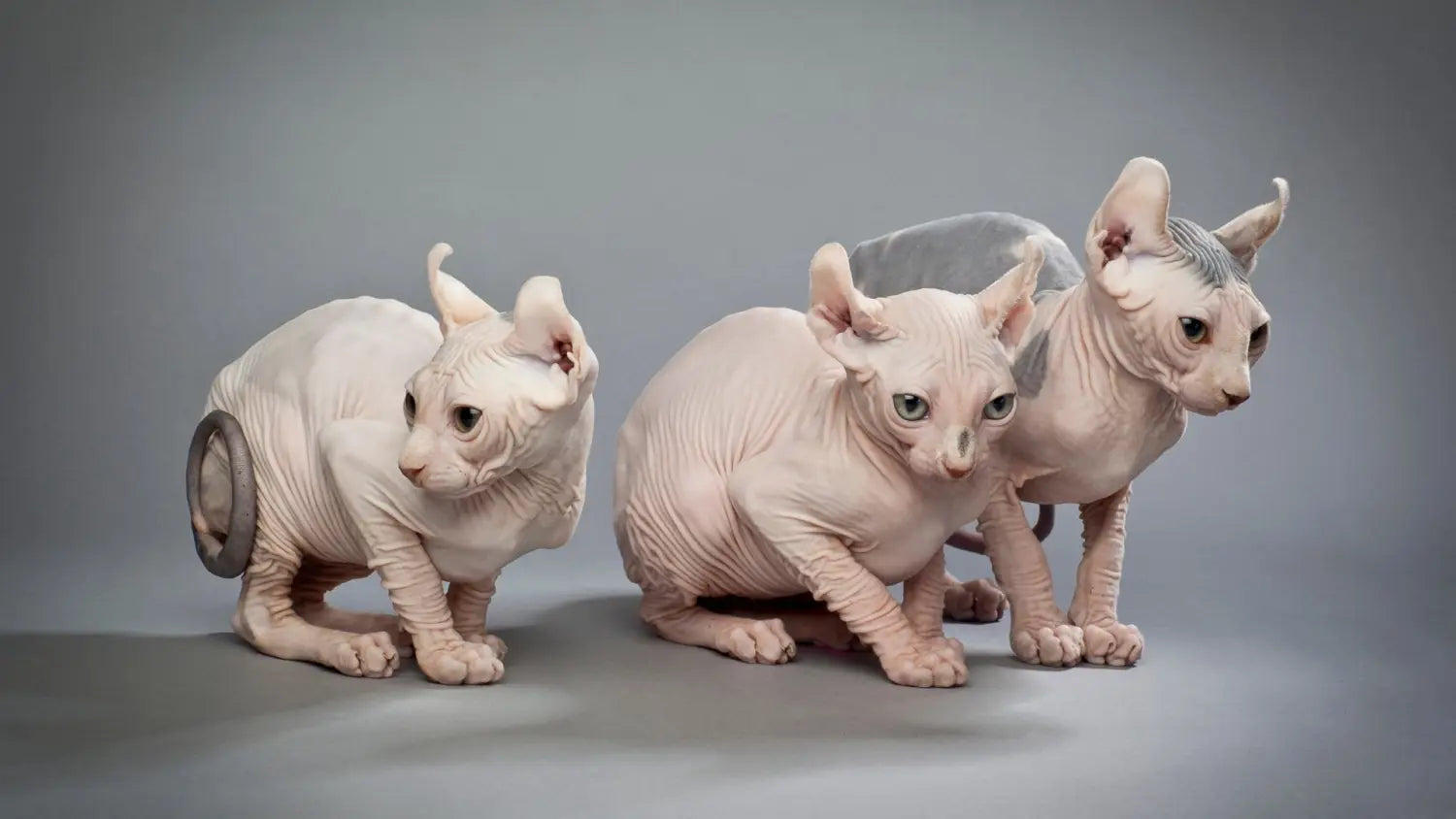
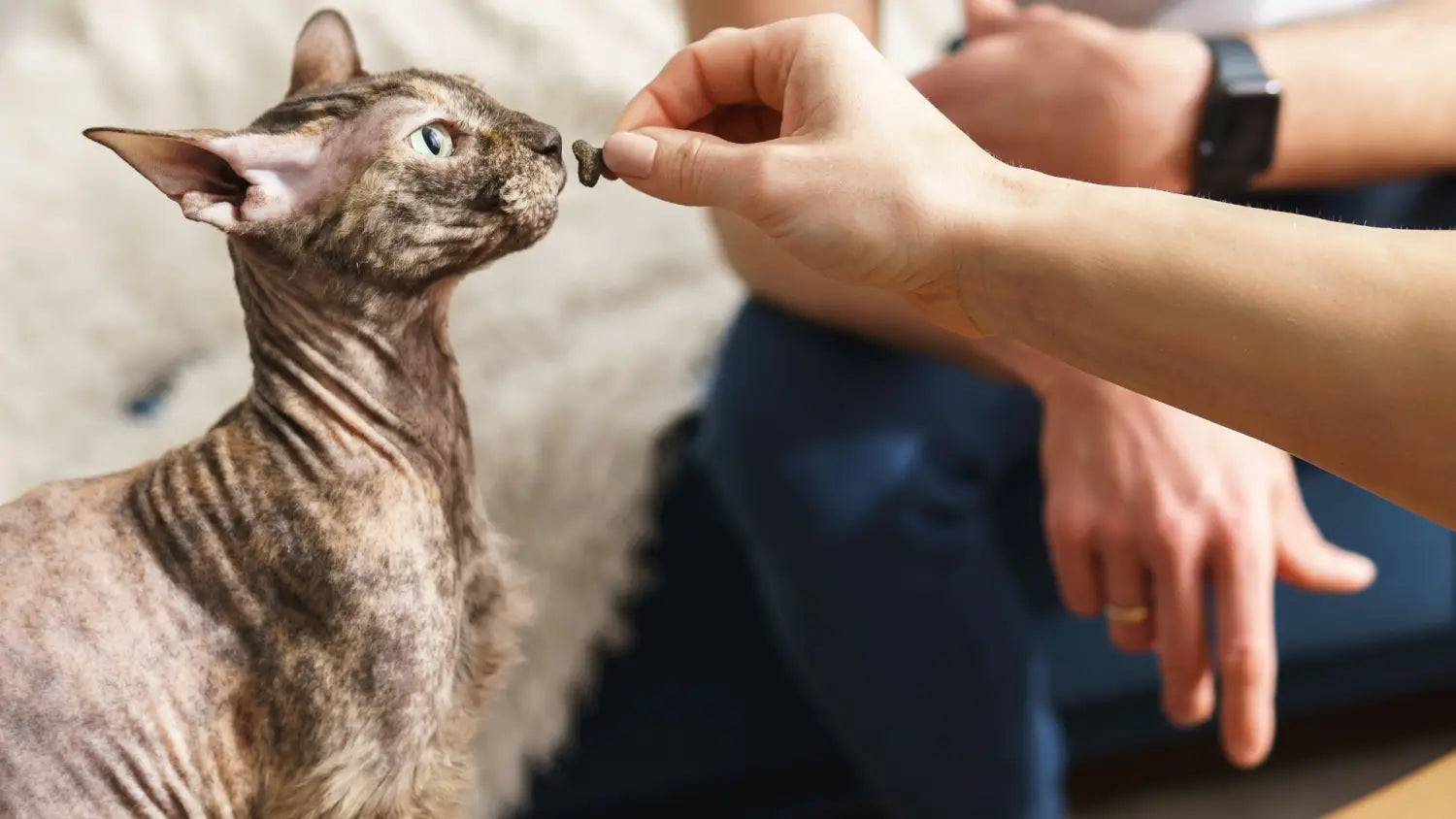
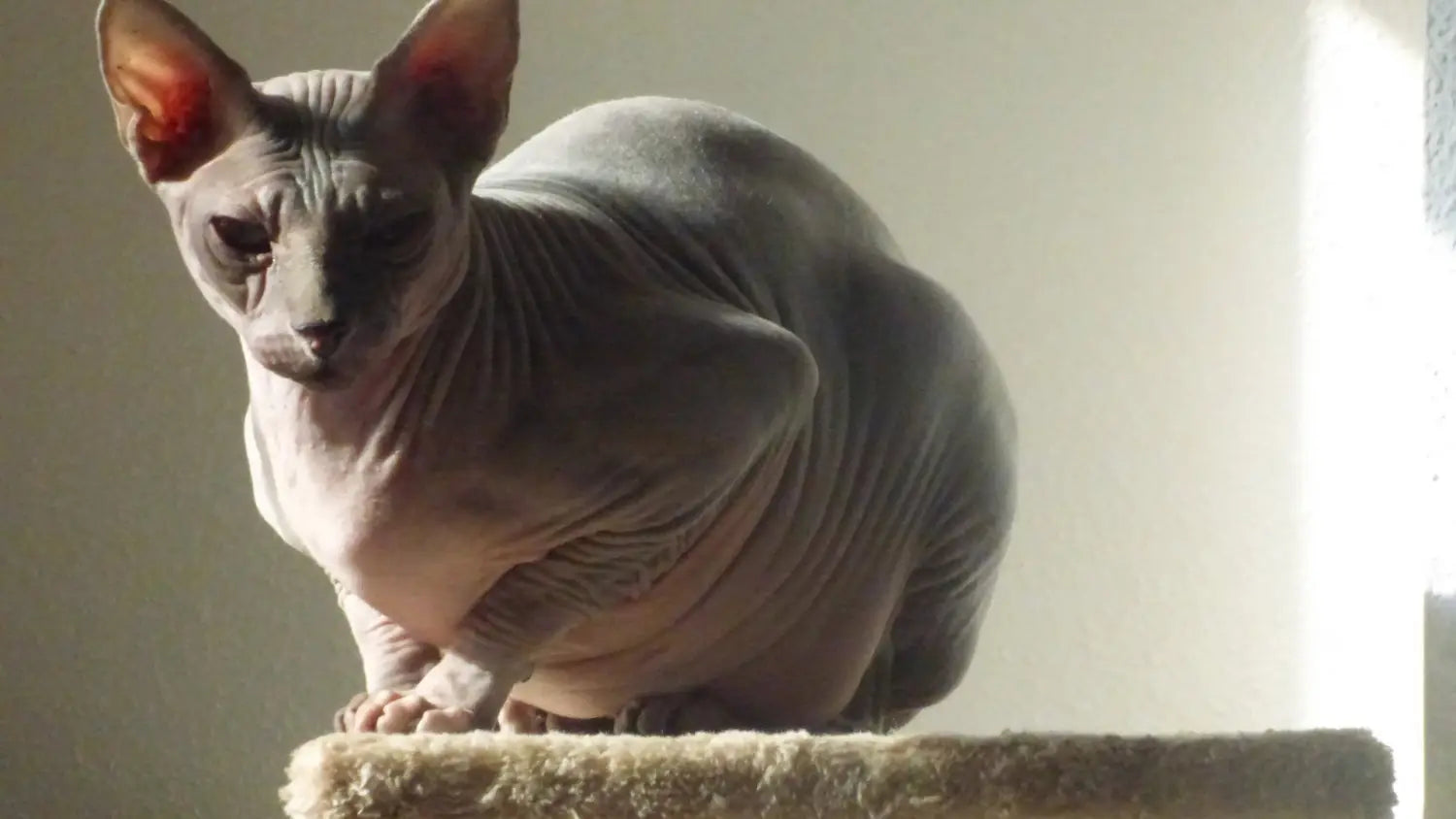

























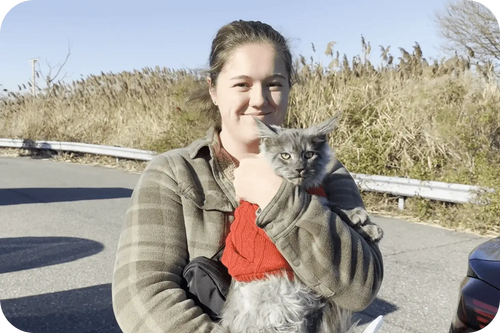













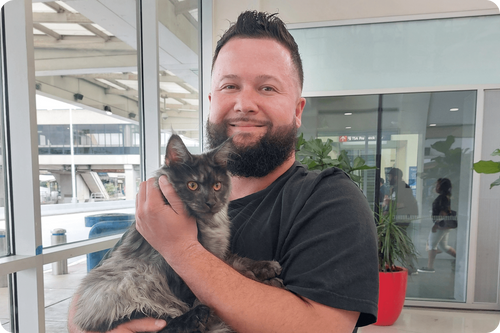











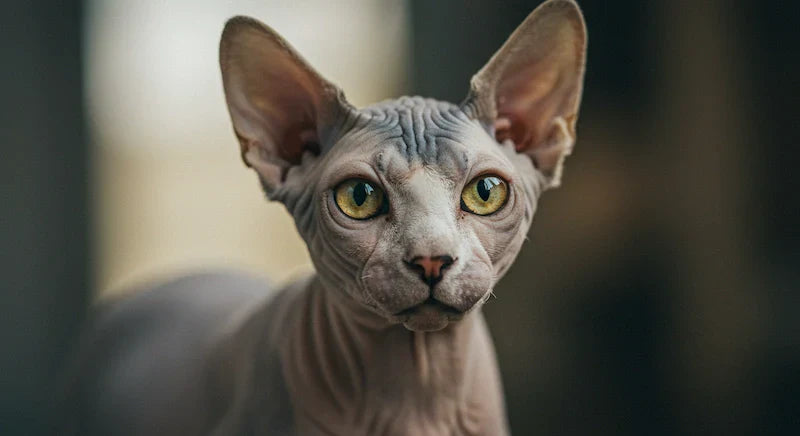
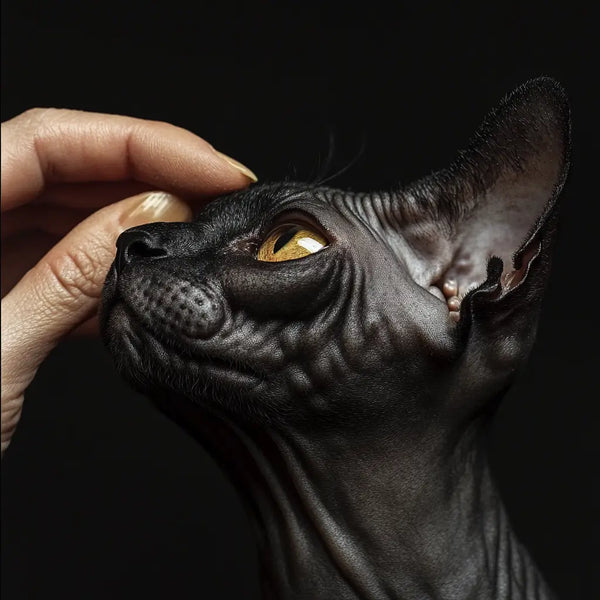

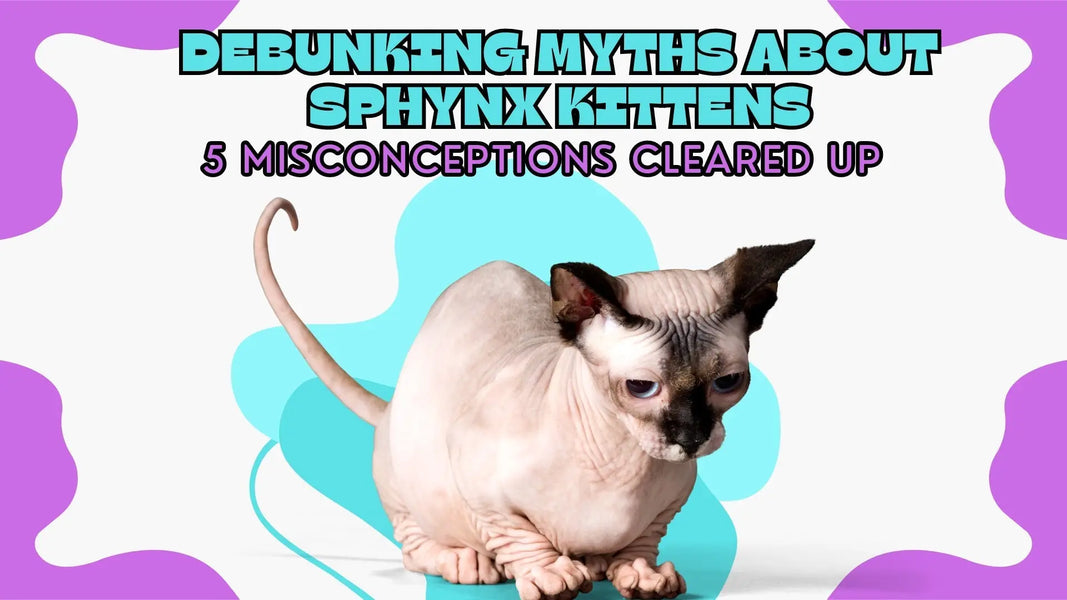





Comments(0)